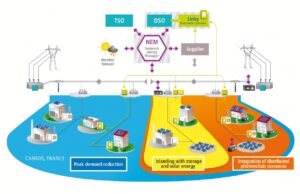Got Solar? Share the power: National energy trial needs volunteers
Australians with rooftop solar are being invited to take part in a first-of-its-kind research project exploring how communities can buy and sell clean energy directly with each other.
Led by Deakin Business School, the Virtual Energy Network (VEN) study is testing how households and small businesses can benefit from peer-to-peer energy trading – allowing those with solar or battery systems to sell their excess energy to others who don’t have solar but want to access greener, cheaper power.
‘This is a potential game changer for how we share renewable energy,’ said Dr Andrea La Nauze, the project’s lead researcher and an energy economist at Deakin University.
‘It’s about empowering people with solar to decide where their surplus power goes and how much they charge for it, while giving more Australians access to clean energy – even if they can’t install panels themselves.’
The trial is now recruiting 400 participants from across Australia, including individuals and community groups, to join an online platform where sellers and buyers of energy can connect based on pricing preferences. Participants don’t need to live in the same suburb – or even the same state – but they do need to be with the same energy retailer.
Sellers could include households, small businesses, or even larger operations with multiple properties. For example, parents could share their excess energy with their children or other extended family members to help with cost-of-living pressures.
Buyers, meanwhile, can benefit by accessing power that’s cheaper than typical electricity prices, while supporting local renewable energy use.
The VEN trial is funded through Energy Consumers Australia’s Grants Program and delivered in partnership with QuantumNRG, ReThink Sustainability and WinZero.
Dr La Nauze said the project was inspired by a successful community-led energy trading initiative in Wingecarribee, NSW, and could help lay the foundation for new models of energy use across the country.
‘It’s about more than saving money – it’s about giving people more choice and control and ultimately creating a more inclusive and flexible energy system,’ Dr LaNauze said.
Dr Michael Dello-Iacovo, Executive Manager, Policy and Advocacy at Energy Consumers Australia, said peer-to-peer energy trading could help break down barriers to solar access.
‘Finding innovative ways to help Australians invest in consumer energy resources, including solar and batteries, and enjoy their benefits is vital to both helping reduce energy bill costs and ensuring a successful transition to net zero.
‘This is a promising way to unlock the value of local renewable energy and share it more widely.’
A webinar will be held on Tuesday 10 June at 7pm to learn about social energy sharing and how to (em)power the neighbourhood
Register here



